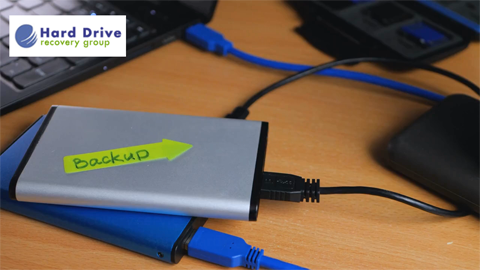Like all organizations, your company most likely has a policy in place for how to evacuate the building in the event of a fire or flood. You may even have a plan in place for dealing with other types of emergencies, such as tornadoes or earthquakes. Companies that plan for the worst always end up doing well in panic type situations. However, given the potentially catastrophic consequences that large scale data loss can have on any company, every business should have its own data recovery strategy and policy in place.
Who Develops The Data Recovery Plan?
 In a large corporation, the information technology department is typically in charge of any data recovery strategy, which makes sense, since this is within the realm. When it comes to actual data recovery, however, even large corporations are rarely prepared. This does tend to hearken back to early days of data backup and recovery when hard drives were measured in Megabytes, and not Terabytes. It took a long time for businesses to realize that they needed a consistent backup policy in place to ensure that important files were saved correctly on a daily basis. Those that resisted because of expense almost always ended up getting hit somewhere down the line.
In a large corporation, the information technology department is typically in charge of any data recovery strategy, which makes sense, since this is within the realm. When it comes to actual data recovery, however, even large corporations are rarely prepared. This does tend to hearken back to early days of data backup and recovery when hard drives were measured in Megabytes, and not Terabytes. It took a long time for businesses to realize that they needed a consistent backup policy in place to ensure that important files were saved correctly on a daily basis. Those that resisted because of expense almost always ended up getting hit somewhere down the line.
Many small and medium-sized businesses with smaller and more nimble workforces, may not have given data recovery a second thought. Unfortunately, when a data recovery emergency occurs, people frequently end up taking actions that can make things worse instead of better.
A data recovery strategic plan requires a small amount of time to develop, and it can be implemented by large and small businesses. There shouldn’t be any difficulties in spreading the policy throughout the organization. It only needs to be easily accessible in the event of a data recovery emergency. Everyone should be familiar with the steps of the strategy, just as they should be with any other emergency policy.
The fundamentals of a successful data recovery strategy
The following are the fundamental steps that should be included in any data protection strategy for both large and small businesses:
How to identify the signs of a possible hard drive failure
No matter how complex your company’s intranet is, every employee must be able to recognize certain indicators of potential physical hard drive crash; these include critical concepts such as corrupted files, files that have disappeared without warning, noisy, clicking hard drives, and other similar indicators. Each of these items should be listed in descending order of seriousness, with water damage and electrical spikes being the most difficult to deal with.
How to retrieve data from a hard drive that crashed
In the olden days, simply restarting the computer would solve any problems. In some cases, this can now cause even more damage to a failing hard drive than it is already experiencing. Every employee should be aware of the first step to take if they suspect a hard drive has failed, even if that first step is to do nothing until a professional data recovery company can assess the situation and determine the cause.
How Valuable Is The Lost Data
Numerous businesses, particularly smaller ones, can be negligent in this area even in an era when there are numerous very inexpensive backup options available. Therefore, emergencies can occur more often than in companies and organizations with more rigid IT policies.
Finding out how valuable the data is, how irreplaceable it is, how soon you need it, and who needs it will help you determine the best course of action to take next.
Quick Action Saves Data
Once it is determined that data loss is the problem at hand, administrative steps should be minimized to the greatest extent possible. The ability to delegate responsibility for the next critical steps to as few employees as possible can save several days of recovery time.
Calling Hard Drive Recovery Group is a good idea.
Whether data recovery is required immediately or can be delayed for a couple of days, contacting Hard Drive Recovery Group is the first and most important step in the data recovery process. A successful hard drive data recovery requires the use of specialized equipment, training, and sometimes clean rooms in order to be successful. Now is not the time to risk valuable data with unproven data recovery software applications. This method can result in a greater amount of data being destroyed.
Basically, data recovery success is only possible when you work with a company that has made the necessary investments in equipment and personnel. A company like Hard Drive Recovery Group.
